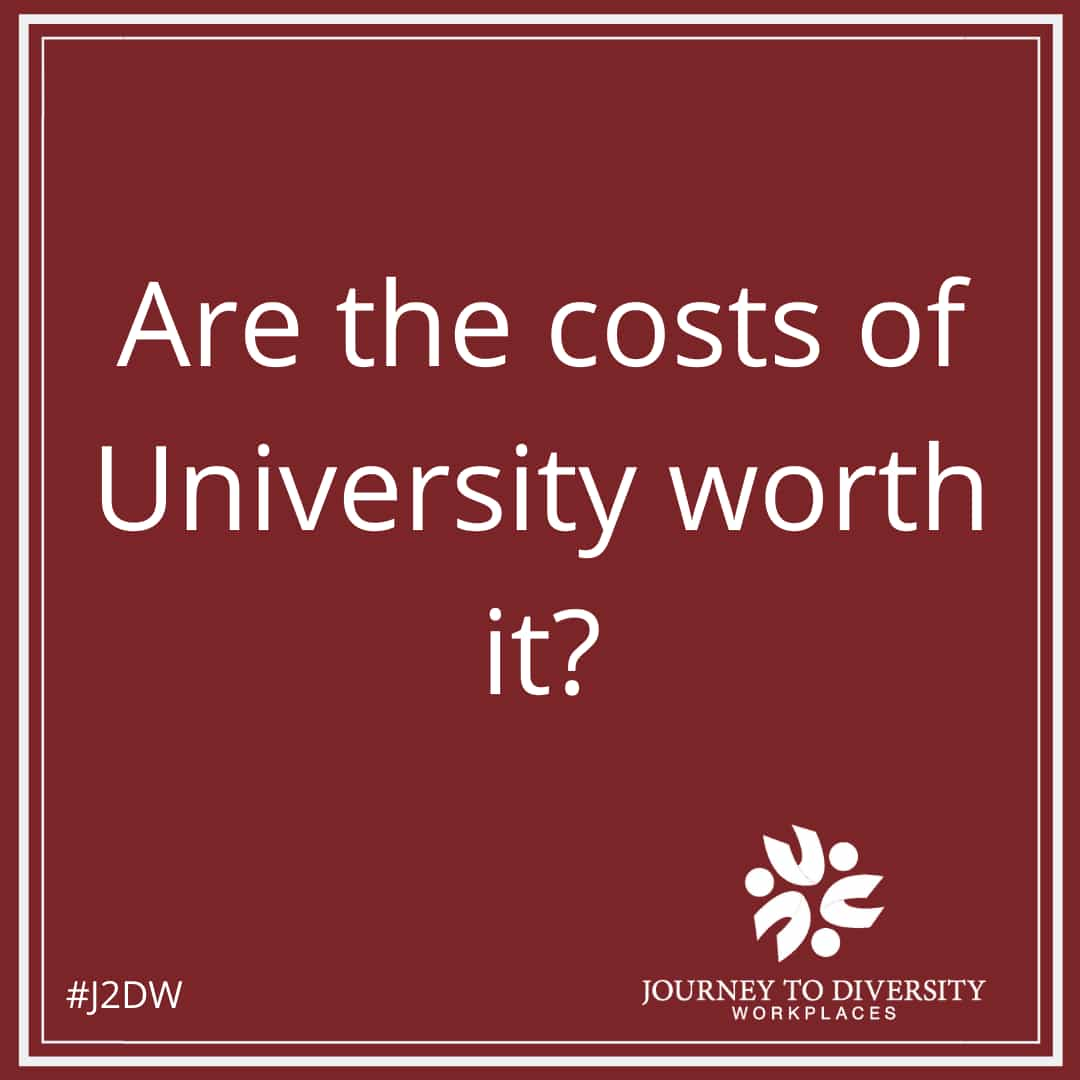In this essay, I will present data from a research that Douglas. A. Webber finds to analyze whether college costs are worth the financial costs they implicate on the individual. In today’s competitive labour market, it is pivotal to know whether college costs are worth the effort. There are varying forms of education, and some occupations are better learned from on-the-job training.
Douglas A. Webber, in his paper, addresses through in an analytical approach whether it is a sound financial investment to go to college after high school. His approach takes the form of comparing the monetary costs associated with the 4 years of attending college with the monetary wage benefits that people who have attended college enjoy. He controls for settings such as major, student loan debt and ability in his analysis.
Motivation:
“The most recent graduating college cohort is burdened by an average of roughly $30,000 in student loan debt, while the national total has surpassed $1.2 trillion, a figure that some claim represents an economic bubble which could have substantial negative effects for future generations.”
Weber conducts this research due to the fact that college debt and people graduating college has been on the increase for a while now, with a number of students reporting a sense of non-fulfillment from their educations. This paper discards the opinions and conducts a quantitative analysis.
Data:
Weber makes use of 6 data sets in his analysis: NLSY79, NLSY97, 2014 ACS, CPS, 1993 NSCG and 2003 NSCG. He makes use of such varying data sets to control for different characteristics such as cognitive ability and age. This is important to make sure the analysis is done in a fair and accurate manner.
Methodology:
Weber formulates a methodology that aims to calculate the age at which the costs of a college education are surpassed by the benefits attained from attending college. The costs of a college degree include both implicit and explicit costs, implicit costs related to the forgone earnings from the time taken up when attending college. The model created caters for selection into college and specific majors based on cognitive and non-cognitive factors.
Weber uses regression models to calculate the age at which an individual would find a college education worthwhile.
Results:
Weber presents 6 tables in his results section, including summary statistics, simulated expected lifetime earnings, break even ages, and the discounted value of degrees. He presents a variation of some data at the 25th percentile of ability and for the discounted value of a degree, he presents a version that allows for major switching.
The most important of the tables that lead to the main conclusion is shown here.
The expected earnings include the possibility supported by statistics that college graduates are likely to not graduate in 6 years’ time. The college costs included in the analysis are $30,000 of debt at graduation at a 4.3% interest rate and $7000 per year not financed by debt.
Weber then discusses the time it takes for the expected value of a college degree to exceed that of a high school diploma. Results presented in the table below.
The notable results from the above table are that there is only one case where the expected value of a college degree will not surpass just a high school education when college expenses are high and the individual majors in Arts/Humanities. Most majors for different variations exceed their costs at some point during an individual’s life.
Conclusion and remarks:
Weber finds that attending college is a sound financial decision for most people and supports this claim by analyzing and controlling for rate of dropout, an ability of individuals, majors etc.
Weber admits that there needs to be added transparency to high school graduates about what exactly they are getting themselves into. High school graduates are at a young age when making the decision to go to college and finance this experience with debt; a lot of students might not fully understand the nature and payoffs of their decisions. Society plays a role in this too, in the way that society has created the notion that the best step forward after high school is college.
Another point to discuss for the Weber analysis is the lack of attention towards other implicit costs of college such as stress and mental health. Full credit is given to Weber for his thorough analysis and control of ability, and I assume the reason he did not include other implicit costs was the subjectivity of assigning a monetary value to a concept like stress, but I do believe it could have been incorporated somewhere into his model. An effort to estimate average yearly spending towards counseling by universities and distributing this to each individual is an example of a method that may have been used.
To wrap up, Weber takes the question of “Are college costs worth it?” and gives a thorough analysis in answering the question for the purposes of making it easier for high school students easier to choose or avoid college. My personal thoughts on reading the paper were quite ‘bittersweet’. It was insightful to see why most people choose to go to college, but there is a feeling of unease that I am reading this just as I am about to graduate college.
REFRENCES
Webber, D. A. (2016). Are college costs worth it? How ability, major, and debt affect the returns to schooling. Economics of Education Review, 53, 296-310. doi:10.1016/j.econedurev.2016.04.007
This article was written by volunteer & co-op student Mohammadali Saleh.



